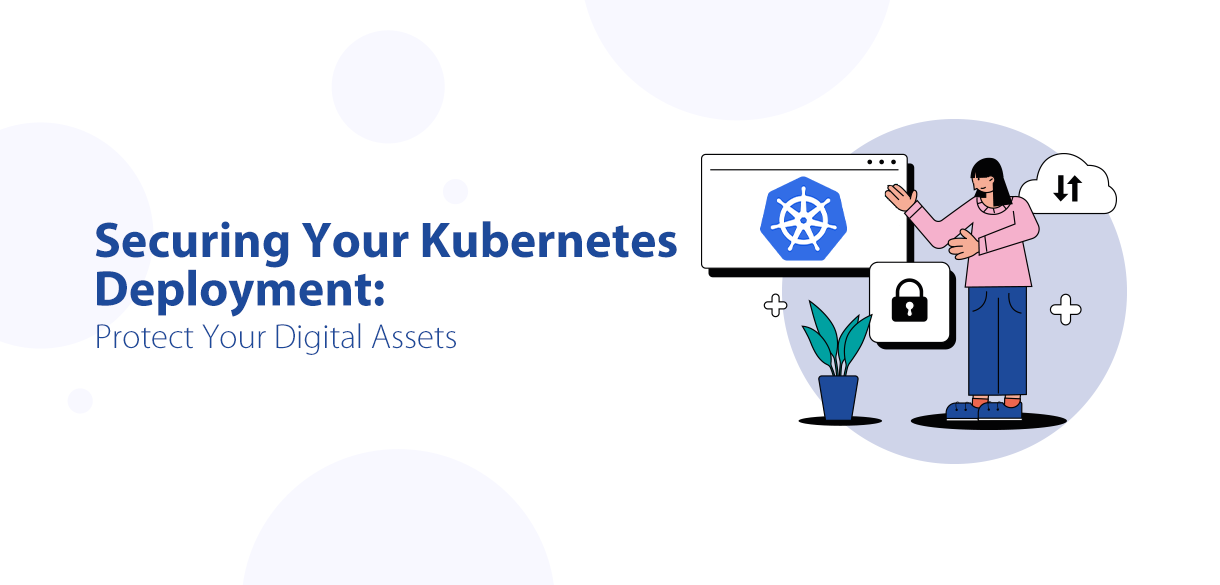Containerization has revolutionized the way software is developed, tested, and deployed. Docker and Kubernetes are two of the most popular tools in the world of containerization and DevOps. This blog explores how Docker and Kubernetes, the power couple of modern deployment, can optimize your workflow.
Understanding Containerization and DevOps
Containerization is a method of packaging an application along with all its dependencies into a lightweight, portable unit called a container. This container can then be deployed on any system running a compatible operating system without any additional configuration or setup. The most popular tool used for containerization is Docker, which has revolutionized the way applications are developed, tested, and deployed.
DevOps is an approach to software development that combines the collaboration between developers and IT operations teams to deliver applications at a faster pace and with greater reliability. It focuses on automating workflows, continuous integration (CI), continuous delivery (CD), and using agile methodologies to improve efficiency and reduce time to market.
Role of Docker in DevOps
Docker is a tool that enables you to create isolated containers for your applications, which include all the necessary code, libraries and dependencies needed to run the application seamlessly. These containers can then be easily moved between different environments such as local machines, testing servers or production servers without any compatibility issues.
One of the major benefits of using Docker is its lightweight architecture. Unlike traditional virtual machines (VMs) that require an entire operating system to be installed on top of a host machine, Docker containers only utilize the necessary resources from the host machine's operating system. This makes them much more efficient and faster than VMs, allowing for better utilization of resources.
Another advantage of Docker is its ability to provide consistent environments across different systems. With Docker, developers can create an image of their application along with all its dependencies and configurations which can then be shared with other team members or deployed on other systems exactly as it is. This eliminates any chances of mismatched environments leading to potential errors or bugs.
Furthermore, Docker also offers version control for these images through its built-in functionality called "docker registry". Developers can store their created images in this registry and easily access previous versions if needed. This makes it easier to roll back changes or handle different versions without any confusion.
Introducing Kubernetes: The Container Orchestrator
Kubernetes automates the deployment, scaling, and management of containerized applications. It acts like a maestro, ensuring your containerized applications run smoothly across a cluster of machines.
Once containers are built, Kubernetes takes over, orchestrating their deployment across a cluster of nodes. Kubernetes schedules containers based on resource availability, scales them dynamically, and ensures high availability through self-healing mechanisms
Optimizing Deployment with Docker and Kubernetes
The synergy between Docker and Kubernetes unlocks a treasure trove of benefits for DevOps:
-
Faster and More Reliable Deployments
Docker containers provide consistent deployment artifacts, eliminating compatibility headaches. Kubernetes automates deployments, reducing manual work and human error.
-
Enhanced Scalability and Resource Efficiency
Containerization allows for efficient resource utilization. Kubernetes facilitates horizontal scaling, allowing applications to effortlessly scale up or down based on demand.
-
Simplified Operations
Kubernetes automates tedious tasks like container scaling and health checks, freeing up DevOps teams to focus on innovation. Additionally, features like self-healing ensure automatic restarts of failed containers, boosting application resilience.
-
Continuous Integration and Deployment (CI/CD)
Kubernetes integrates seamlessly with CI/CD pipelines, enabling the continuous delivery of containerized applications. This fosters a culture of rapid development and deployment.
Building Powerful Deployments with Kubernetes
Docker brought containerization to the forefront, but Kubernetes became the go-to tool for managing those containers. Kubernetes automates deployment, scaling, and overall management of containerized applications, providing a strong platform for orchestration. Features like auto-scaling, service discovery, and rolling updates make it ideal for deploying and handling complex microservices applications at scale. By removing the complexities of infrastructure management, Kubernetes frees DevOps teams to focus on the application itself, leading to greater agility and resilience.
Supercharging Deployment Pipelines
Combining Docker and Kubernetes within a DevOps framework significantly improves deployment pipelines, making them more efficient and reliable. CI/CD pipelines use Docker to build, test, and package applications into consistent containers that work the same way across all environments. Kubernetes then takes over, orchestrating the deployment of these containers and handling complex workflows smoothly. Continuous monitoring and feedback loops further improve the deployment process, allowing teams to iterate quickly and confidently deliver value to end-users.
The Advantages of Containerization and DevOps
Adopting containerization and DevOps brings a wealth of benefits to organizations:
- Faster Time-to-Market: Containerized applications deploy quicker, allowing for rapid iteration and innovation.
- Enhanced Portability: Containers ensure applications run the same way across different environments, from development to production.
- Improved Resource Utilization: Kubernetes optimizes resource allocation, maximizing infrastructure efficiency and cost-effectiveness.
- Scalability and Resilience: Kubernetes automates scaling and self-healing, ensuring applications stay responsive and available under varying loads.
- Streamlined Operations: DevOps practices encourage collaboration, automation, and accountability, reducing manual intervention and minimizing downtime.
Containerization and DevOps, powered by Docker and Kubernetes, represent a major shift in deployment strategies. They allow organizations to achieve new levels of efficiency, agility, and scalability. By embracing these technologies and promoting a culture of collaboration and automation, businesses can stay ahead in today's dynamic digital landscape, delivering value to customers faster and more reliably than ever before.



